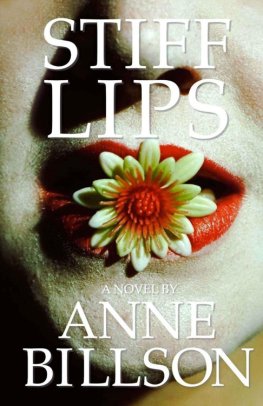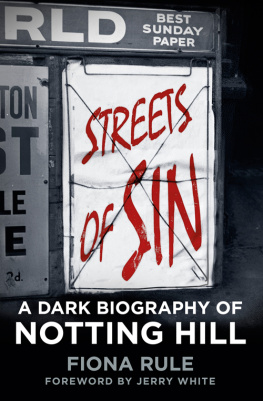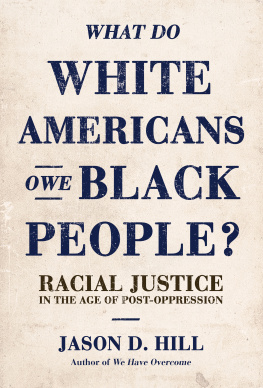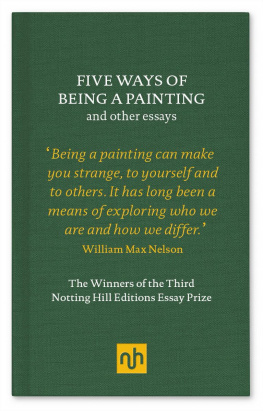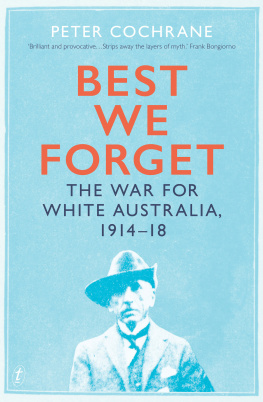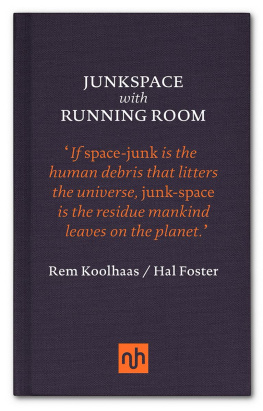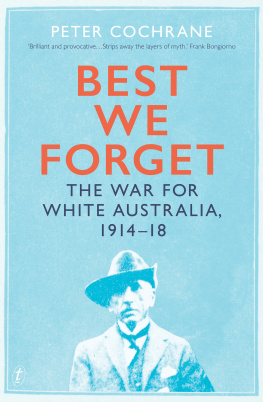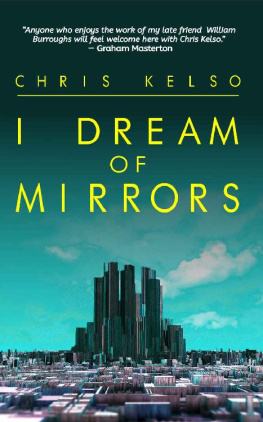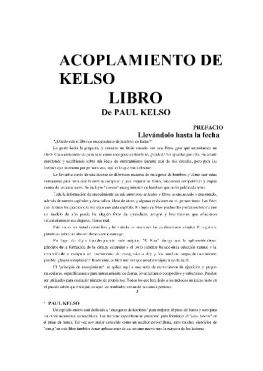Acknowledgements
In the winter of 2004, I first learned of the unsolved murder of Kelso Cochrane through a few lines in a book on the history of immigration to the UK. Here was a defining moment in British race relations within living memory, that was now consigned to the footnotes. I was consumed by the idea that the perpetrators were still out there somewhere, and suggested making a documentary on the case to the BBC, where I was then working. Unbeknown to me, Stanley Cochrane had already begun his quest to discover the truth about his brothers death. When the documentary was eventually commissioned, we found Stanley, and he immediately agreed to be part of the programme, which aired in April 2006.
Yet, in some ways, this was unsatisfactory and I felt it couldnt be the final word on the case: there was much more to discover, much more to say. Between jobs, I continued searching for those who might know the answers. As their days ebbed away, many were finally willing to speak, though in some instances only offthe-record; and until fairly late in my investigation, the possibility - albeit distant - of justice finally being done, was real.
But bursting into peoples lives and raking over their pasts held dilemmas. The old men I met werent the violent, testosterone and alcohol-fuelled racist youths of around half a century before. There was the impact of exposure on their families to consider, and just how far should I go in putting long-forgotten criminal records back in the public eye? In the end, such concerns were always superseded by the stark truth that a mans life was taken for no other reason than he was black, and no-one paid for it. To spend months digging into the case, knocking on doors, trying to prise information out of people, then to not put it on the record, would therefore have been an exercise in voyeurism rather than journalism.
In the case of Pat Digby, any libel constraints were lifted by his death in 2007. It didnt relieve me of a duty of fairness: to his reputation, as well as to those still alive who were close to him. In the end, the weight of testimony - not simply from Susie Read or Frank, but, compellingly, from someone who was actually present in Southam Street that night - justifies whats written.
In my journey to unravel the past, many have received me warmly. Particular thanks to Stanley Cochrane, who has never sought revenge, only some kind of justice, and Susie Read, who has overcome a great deal in her life and, unlike so many, has been prepared to face the consequences of going on the record about the murder.
I am also, in particular, hugely indebted to Michael Gillard for his unfailing support and wise counsel. Special thanks also to Adrian Gatton, for perceptive advice and giving me the impetus to see this through. For their time, reminisces, knowledge or camaraderie, I am grateful to: Monty Strikes - inimitable still and moving images and generosity with ink cartridges; Gibby Zobel; Maya Cochrane; Rose, Millicent and Chris Christian; Frank and Pauline Pulley, who have shown me much kindness; Derek Jones; the meticulous Zecki Gerloff; Mike Power; Eddie Adams; the late Johnny Edgecombe; the late Roy Stewart; the late Sam Fayne; Jeffrey Smele; Colin Prescod; Dave Pitt; Joe McKenzie; Barry Howe; John Prince; Abigail Carter at Forensic Resources Limited; Professor Allan Jamieson at the Forensic Institute; Alfonso Santana, who is currently at work on an important Southam Street project of his own; Bob Fenton and the Association of Ex-CID Officers of the Metropolitan Police; Geoffrey Braithwaite; the Ken Sprague Fund; Charlie Phillips; Parachute; Pamela Moffatt; Gerry Gable; Madeleine Watson and family; Harry and Kay Fowler; Susan and Rupert Ray; Esther Obiri-Darko; Isabela Yeukai Dampier Spicer; Michelle de Mello and Tom Spicer; Gerry and Tor Adams; the late Helen Maleed; Nisha Ali; Will Davies and family; Steve Barclay; David Malin; Joan Le Mesurier; Susie Griffiths; Emma Griffiths-Malin; Hemi Sweeney; Fiona Broadfoot; Yolanda Nathan; Tariq Goddard; the Adeyemis; Frank Horwill; Phili Nyoni; Patson Muzuwa; Stephane Gentili; Claudia Stark; Jane Fellner; Anita Bromley; Lee Maddox; Ben Owen; Sean and Kelvin; Geoff Smiles; Martin Herring and Roast Beef TV; the Inn on the Green; Rowan Lawton; Pat Mason; Arlen Harris; Farai Sevenzo and Matthew Collin. Thanks also to the BBCs Fatima Salaria, producer / director of Who Killed My Brother, Kelso Cochrane? I am also grateful to many who prefer to remain anonymous, but who generously shared their time and memories.
I have benefitted enormously from the invaluable resources at the National Archives in Kew, the British Library in Kings Cross, Kensington Central Librarys Local Studies section, North Kensington Library, the British Newspaper Library in Colindale, Westminster Library, the London Metropolitan Archives, Paddington Library, Shepherds Bush Library, the National Meteorological Library and Kensington Town Halls Planning Department.
The past recedes, lapping back from a muddied shore... Will Selfs quote at the start of Chapter Five is from Walking to Hollywood (2010), and is reproduced with the kind permission of Bloomsbury and Grove Atlantic.

Contemporary culture has eliminated both the concept of the public and the figure of the intellectual. Former public spaces both physical and cultural are now either derelict or colonized by advertising. A cretinous anti-intellectualism presides, cheerled by expensively educated hacks in the pay of multinational corporations who reassure their bored readers that there is no need to rouse themselves from their interpassive stupor. The informal censorship internalized and propagated by the cultural workers of late capitalism generates a banal conformity that the propaganda chiefs of Stalinism could only ever have dreamt of imposing. Zer0 Books knows that another kind of discourse intellectual without being academic, popular without being populist is not only possible: it is already flourishing, in the regions beyond the striplit malls of so-called mass media and the neurotically bureaucratic halls of the academy. Zer0 is committed to the idea of publishing as a making public of the intellectual. It is convinced that in the unthinking, blandly consensual culture in which we live, critical and engaged theoretical reflection is more important than ever before.
Select bibliography
Antigua Black , Gregson and Margo Davis, Scrimshaw Press, San Francisco 1973.
A Troubled Area, Notes on Notting Hill , Pearl Jephcott, Faber, 1964.
Beyond the Mother Country , Ed Pilkington, IB Tauris and Co, Ltd, 1988.
Black Britannia: A History of Blacks in Britain , Edward Scobie, Johnson Publishing Co Inc, 1972.
Black Shirt: Sir Oswald Mosley and British Fascism , Stephen Dorril, Penguin Global, 2008.
Claudia Jones, A Life in Exile , Marika Sherwood, Lawrence & Wishart, 1999.
Gangsters Lady , Ellen Cannon, Yellow Brick Publishers, 1993.
Inside Outsider. The Life and Times of Colin MacInnes , Tony Gould, Allison & Busby, 1983.
Jack of Jumps, David Seabrook, Granta Books, 2006.
Jungle West 11 , Majbritt Morrison, Tandem Books, 1964.
Londons Newcomers, The West Indian Migrants , Ruth Glass, Harvard University Press, 1960.
Memoir of a Fascist Childhood , A Boy in Mosleys Britain, Trevor Grundy, Heinemann, 1998.
Notting Dale 1900 onwards , Nobby Buckingham, Joan Groom, Clara and Jim Garritty - Notting Dale Urban Studies, Kensington Central Library, Local Studies section.
Notting Hill and Holland Park Past , Barbara Denny, Historical Publications, 1993.
Notting Hill in bygone days , Florence Gladstone and Ashley Barker, Anne Bingley Publisher,
1923 and 1969.


